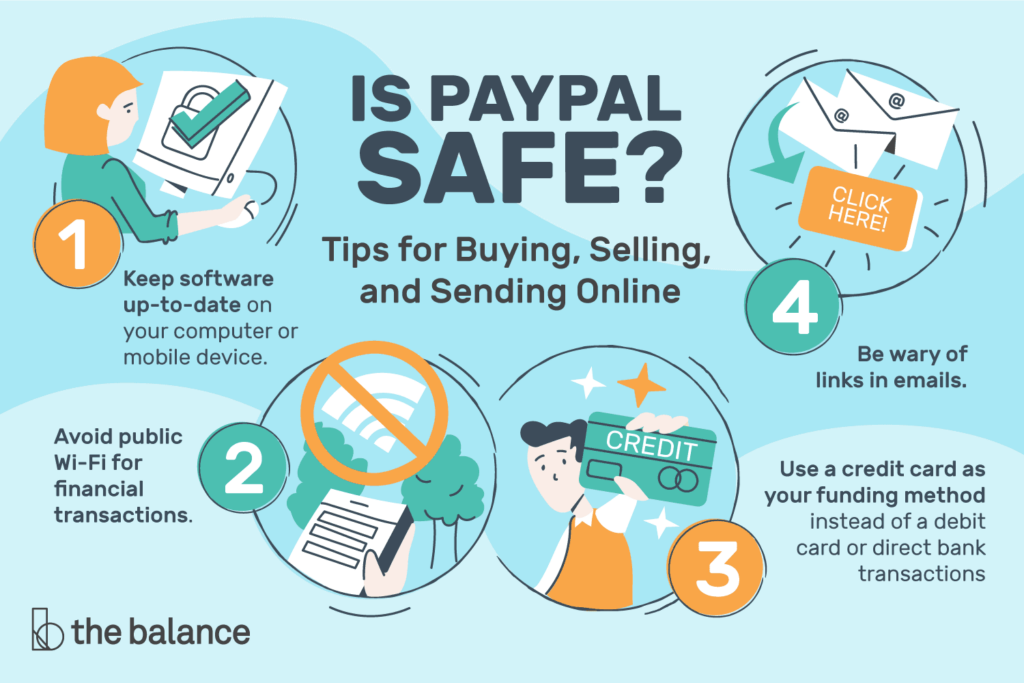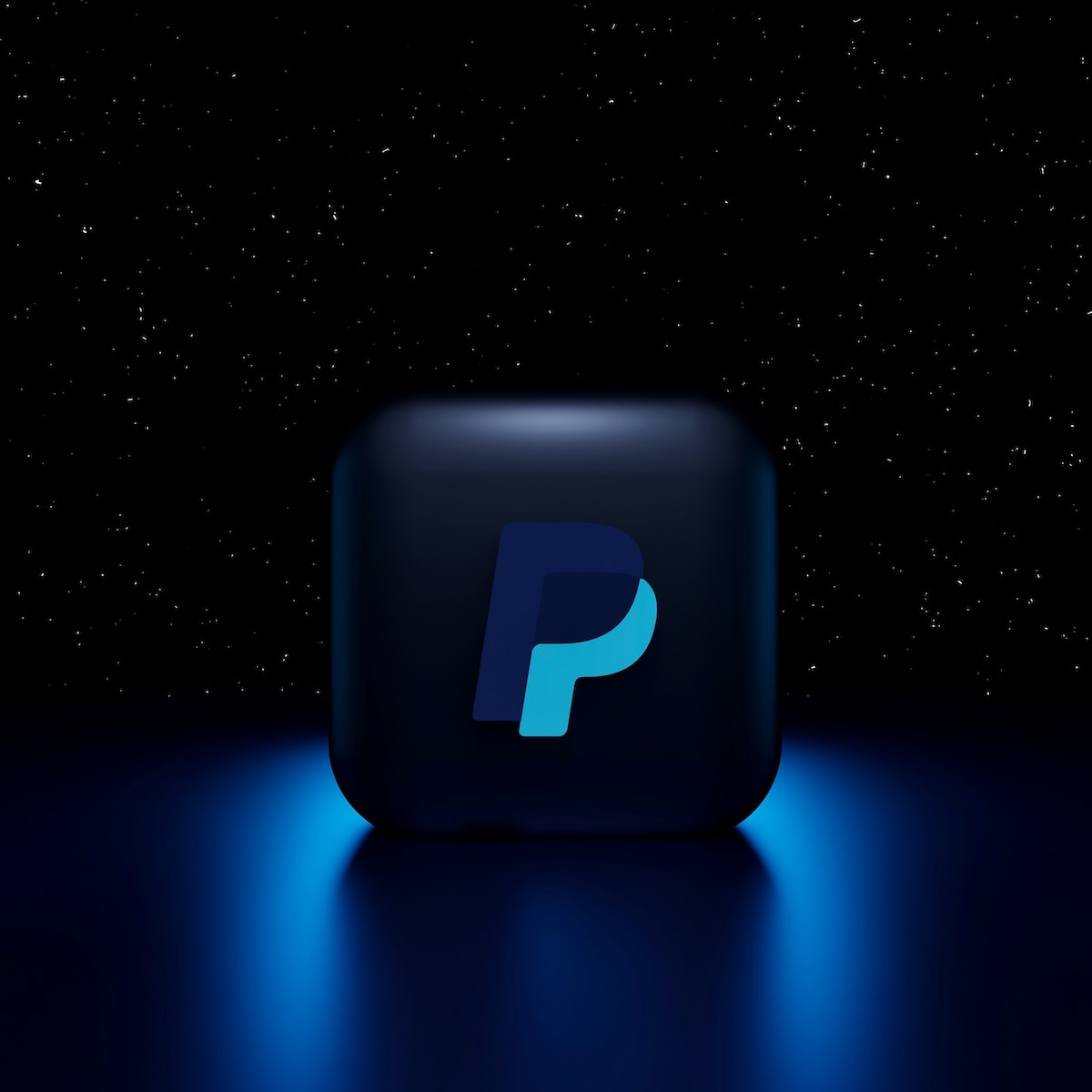PayPal, the global leader in online payments, has revolutionized the way individuals and businesses conduct financial transactions. With its seamless and secure platform, PayPal has gained immense popularity worldwide. As users benefit from its convenience and reliability, one question arises: How does PayPal make its money? Explore PayPal’s revenue model. From transaction fees and merchant services to interest income and strategic partnerships, we will uncover the mechanisms behind PayPal’s profitable business model.
Transaction Fees
One of the primary sources of revenue for PayPal is transaction fees. Whenever users send or receive money through PayPal, a fee is charged based on the transaction amount. The fee structure varies depending on factors such as the type of transaction (personal or business), the location of the sender and recipient, and the funding source (credit card, bank transfer, etc.)
PayPal’s transaction fees are typically a percentage of the transaction value plus a fixed fee per transaction. These fees are essential for PayPal’s revenue generation, as millions of transactions occur daily through its platform. As more individuals and businesses rely on PayPal for their financial needs, the cumulative effect of these transaction fees contributes significantly to PayPal’s bottom line.
Merchant Services
PayPal offers a range of merchant services designed to facilitate online transactions for businesses. These services provide merchants with the ability to accept payments through PayPal on their websites or mobile applications. PayPal charges merchants a fee for processing payments, which is typically a percentage of the transaction value plus a fixed fee per transaction.
In addition to payment processing, PayPal offers additional merchant services such as fraud protection, invoicing, and subscription management. These value-added services come at an additional cost to merchants, generating additional revenue for PayPal.
Interest Income
PayPal generates interest income by holding and investing the funds stored in users’ PayPal accounts. When users receive money through PayPal or maintain a balance in their accounts, PayPal has the opportunity to invest those funds and earn interest on them until they are withdrawn or used for transactions.
Although PayPal does not disclose the exact details of its investment strategies, it is likely that they invest in low-risk, interest-bearing assets such as government bonds or money market instruments. This allows PayPal to earn interest income while providing users with the convenience of having funds readily available in their accounts.
Despite the fact that PayPal does not disclose the exact details of its investment strategies, it is likely that they invest in low-risk, interest-bearing assets such as government bonds or money market instruments. This allows PayPal to earn interest income while providing users with the convenience of having funds readily available in their accounts.
Strategic Partnerships and Acquisitions
PayPal has strategically formed partnerships with various companies to expand its services and reach a wider audience. These partnerships often involve integration with other platforms, allowing users to link their PayPal accounts and make seamless transactions.
In some cases, PayPal may charge fees for these integrations or revenue-sharing agreements with its partners. Additionally, PayPal has a history of acquiring companies that complement its existing services or enhance its technological capabilities.
These acquisitions not only expand PayPal’s market share but also contribute to its revenue growth. For instance, the acquisition of Braintree in 2013 brought the popular mobile payment platform Venmo under the PayPal umbrella, further strengthening its position in the digital payments landscape.
Data Privacy Concerns and Security Breaches


One of the primary risks with any online payment system is the potential for security breaches and data privacy issues. Despite PayPal’s security measures, there have been instances where hackers gained unauthorized access to user accounts, compromising personal information and funds.
While PayPal takes steps to mitigate such risks, users must remain vigilant by regularly updating their passwords, enabling two-factor authentication, and monitoring their accounts for any suspicious activity.
Limited Access and Account Freezes
PayPal has stringent policies in place to combat fraud and money laundering. While these measures are essential, they can sometimes result in innocent users facing account freezes or limited access. Such incidents often arise when PayPal’s automated systems detect suspicious activity or receive false claims.
This can be highly inconvenient, especially for individuals and businesses relying heavily on PayPal for their transactions. To minimize this risk, users should ensure compliance with PayPal’s terms of service, maintain transparent transaction records, and promptly respond to any verification requests.
High Transaction Fees
PayPal charges fees for various services, including receiving payments, currency conversions, and withdrawing funds. While these fees are essential for PayPal’s operations, they can significantly impact individuals and businesses conducting a large volume of transactions.
It is crucial for users to understand and factor in these fees when using PayPal as a payment platform, especially for international transactions or large-scale business operations. Exploring alternative payment options may be beneficial in reducing transaction costs for those affected by high PayPal fees.
Disputes and Inconsistent Buyer/Seller Protection
PayPal offers buyer and seller protection programs to safeguard transactions. However, these programs have faced criticism for being inconsistent in their resolutions. In some cases, buyers have experienced difficulties in receiving refunds, while sellers have encountered unjustified chargebacks. The dispute resolution process can be time-consuming and subjective, leading to frustration for both parties involved.
Users should carefully review PayPal’s policies and terms of service, maintain clear communication with buyers or sellers, and keep detailed records of transactions to mitigate the risks associated with disputes.
Regulatory Compliance and Compliance Reviews
As a financial institution, PayPal must adhere to various regulatory requirements in different jurisdictions. Non-compliance can result in penalties, legal implications, and even the suspension of services.
PayPal periodically reviews user accounts for compliance with its policies and regulations, which may lead to accounts being temporarily or permanently suspended. Users must familiarize themselves with PayPal’s terms of service and comply with applicable regulations to avoid disruptions in service and potential financial losses.
Limited Communication Channels
PayPal’s customer service primarily relies on online communication channels such as email, chat, and community forums. This can be frustrating for users who prefer or require immediate assistance through phone support.
While the PayPal revenue model does offer phone support in certain cases, it may not be easily accessible or readily available to all users, especially for general inquiries or non-urgent matters.
Lengthy Response Times
Some users have reported experiencing delays in receiving responses from PayPal’s customer service. This can be problematic when users are facing urgent issues or need a quick resolution to a problem. Extended response times can lead to frustration, especially when financial matters or account-related concerns are involved.
Inconsistent and impersonal support
In addition, many users have expressed dissatisfaction with the quality and consistency of PayPal’s customer service. The responses received from customer support agents may vary in terms of accuracy, helpfulness, and clarity. Some users have reported receiving generic or automated responses that do not adequately address their specific concerns.
This lack of personalized support can leave users feeling frustrated and dissatisfied with their overall customer service experience. These downsides may not apply to every interaction with PayPal’s customer service, as experiences can vary. However, it is important to be aware of these potential challenges and consider them when relying on PayPal’s customer support for assistance.
Should you try regardless?


Despite Paypal’s revenue model containing some serious drawbacks, we advise you to still give it a chance. After all, PayPal facilitates international transactions and simplifies cross-border payments. It supports multiple currencies and provides a built-in currency conversion feature, allowing you to send or receive payments in different currencies without the need for manual conversion. This makes it convenient for international e-commerce, freelance work, or sending money to family and friends abroad.
Security and Privacy
PayPal implements advanced security measures to protect your financial information. When you use PayPal, your payment details are not directly shared with the merchant, reducing the risk of potential data breaches or unauthorized transactions. Additionally, PayPal offers features such as two-factor authentication and encryption to enhance account security.
Integration with Online Platforms
PayPal is integrated with various e-commerce platforms, marketplaces, and online services, making it easy to set up and accept payments on your website or online store. It provides a seamless checkout experience for customers, contributing to increased conversion rates and sales. In the digital, this can act as an important advantage to adhere to the Paypal revenue model.
Related Questions
How does PayPal make money on credit card transactions?
PayPal operates on a dual-sided business approach, enabling it to generate income from both merchants and consumers. Its revenue stream from merchants primarily stems from levying fees for facilitating their payment transactions and providing additional payment-related services.
What products and services does PayPal offer?
Apart from facilitating online payments, PayPal provides various additional services, such as a debit card for making payments, credit card readers designed for business use, and options for accessing lines of credit. PayPal is widely recognized as a highly secure and trustworthy platform for sending payments over the Internet.
What is PayPal’s net worth in 2023?
A dynamic chart illustrating the historical market capitalization of PayPal Holdings (PYPL) over the past decade is available. Market capitalization, often used to gauge a company’s value, is determined by multiplying the current stock price by the total number of outstanding shares. As of June 23, 2023, PayPal Holdings’ net worth amounts to $76.5 billion.
How much money can you send via PayPal?
You have the option to send a maximum of $60,000.00 USD in a single transaction, although this amount may be restricted to $10,000.00 USD. It’s important to note that these limits can differ based on the currency you are using. If you haven’t verified your PayPal account, there will be a cap on the total sum of money you can send.
Is PayPal paid or free?
Using PayPal for purchases or other commercial transactions is generally free of charge, with the exception of cases where currency conversion is required.
Does PayPal need a bank account?
Having a bank account is not a prerequisite for creating a PayPal account or receiving funds from it. To set up a personal PayPal account, you only need to provide basic information such as your name, address, phone number, and email address.
How long can money stay in PayPal?
Your funds can remain in your PayPal balance for an unlimited duration. Just make sure to maintain an active presence on the platform. However, it’s important to note that depending on your jurisdiction, there may be government regulations that require unclaimed funds. These will need to be transferred to the authorities after a relatively short period, sometimes as little as two years. To avoid any issues, it is advised to log in to the PayPal app regularly.
Who owns PayPal?
In 2002, eBay acquired PayPal for a sum of $1.5 billion. However, in 2015, eBay decided to separate PayPal and allow it to operate as an independent company. Currently, PayPal is the parent company of various brands including Braintree, Venmo, Xoom, and iZettle. These details are presented using the VTDF Framework developed by Gennaro Cuofano of FourWeekMBA.





















Leave a Reply
View Comments